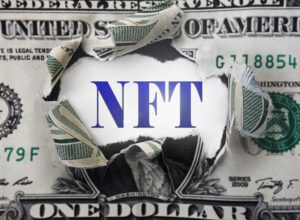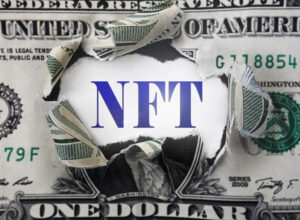There’s no question that data and analytics have forever changed the way we practice law. The days when we fished around for anecdotal information to make major case and strategy decisions are long gone. Technology has put vast mountains of data at our fingertips, and Lex Machina has been leading the charge when it comes to using data analytics to turn that data into winning case assessments and strategy.
Now, Lex Machina is raising the data bar even higher with Quick Tools, the easiest way to get instant access to Lex Machina’s underlying data and the most comprehensive analytics on the market, specifically curated to give you the information you need, right when you need it.
When you need an answer now, you need Quick Tools.
What is Quick Tools?
Here’s a scenario you probably know all too well: your client calls you up with an obscure legal question out of the blue (probably late on a Friday afternoon) and wants an answer immediately, even though it’s not related to your current matter or possibly even to your area of expertise. In the past, you probably found some way to put them off with an answer that wasn’t really satisfactory to anyone involved. Then you started making calls or roaming the halls to question people who might know, followed by a stressful weekend of trying to prepare a solid answer for your client on Monday. But what if there was actually a way to find the answer and relay it in a matter of minutes?
Quick Tools is that way. It puts a universe of highly curated, in-depth litigation strategy information at your fingertips – information it might otherwise take you hours to cobble together. You get to demonstrate expertise to your clients while also having the confidence that you found the right answer quickly.
Of course, the phone call scenario is just one example of how Quick Tools is changing the way lawyers access information. Quick Tools gives you immediate access to data and intelligence that you won’t find anywhere else, via nine specific default tools that have been built based on customer feedback that Lex Machina has gathered over the years:
- COVID-19 Impact Analyzer
- Parties Comparator
- Courts & Judges Comparator
- Law Firms Comparator
- Early Case Assessor
- Motion Kickstarter
- Attorney Team Analyzer
- Patent Portfolio Evaluator
- Expert Witness Explorer
How It Works
Your landing page for Quick Tools exists as a tab within the bigger Lex Machina platform, and on it you’ll see the full collection of legal analytics tools that have been created to give you instant access to information in nine discrete areas.
 Quick Tools is a more curated experience than you’ll get in the main Lex Machina platform, though it’s backed up by the same rich data, which is still available in the other tabs across the top of your screen. You can also link to the data in other areas of Lex Machina through the information displayed in Quick Tools. These tools are exclusive to Lex Machina – you won’t find this kind of curated analytics experience in any other product.
Quick Tools is a more curated experience than you’ll get in the main Lex Machina platform, though it’s backed up by the same rich data, which is still available in the other tabs across the top of your screen. You can also link to the data in other areas of Lex Machina through the information displayed in Quick Tools. These tools are exclusive to Lex Machina – you won’t find this kind of curated analytics experience in any other product.
When you click into an individual tool, you’re guided through fields where you input basic information to get to the data you want, which is then produced in a report that can be viewed on a single scrollable page and easily shared. The comprehensive report is made up of analytics that typically take more than one search to replicate in the main Lex Machina platform, but you get it in a matter of minutes.
A Closer Look
Each of the nine Quick Tools is designed to give you quick access to curated information in a very specific area.
For example, if your client was sued in a contract case in Vermont and was wondering if they might fare better in California courts, you can go into the Courts & Judges Comparator and answer exactly that question in under two minutes.


Almost instantly, Quick Tools will show you the different contract case loads between your chosen jurisdictions, as well as how long those cases tend to last, what the typical damages are, and much more. If you have specific judges in mind within a given jurisdiction, you can compare on that level, too. With Quick Tools, you have data at your fingertips to make quick, informed decisions about the best way to proceed with cases from the instant they’re initially filed.
Quick Tools is also a powerful tool for onboarding new clients and matters. The Early Case Assessor is a great place to get valuable data that can help you understand what lies ahead, even if you’re not sure where to start with a new engagement. Just start by inputting the basic information about the opposing party like party name, opposing counsel, and type of case.

What you get in return is a comprehensive overview of the party’s history in similar matters – the most recent cases of the same type for that party, opposing counsel’s history representing that party, how often the cases reached trial, and much more.

While no one can ever guarantee litigation outcomes with complete certainty, the Early Case Assessor gives you a good, immediate snapshot of likely outcomes when your client is served and you get that dreaded Friday afternoon phone call asking you to predict the future. Quick Tools offers valuable data that’s integral to decision-making at all stages of your case, from inception through strategic decisions like motion practice and expert witnesses.
The COVID-19 Impact Analyzer even gives you insight into which areas of law were most heavily impacted by the upheaval of 2020.

Whether you’re an in-house lawyer or outside counsel, you’ll find a Quick Tool that offers insight in some area of your practice that’s going to make your work easier, whether that’s assessing internal threat levels and litigation risks or deciding whether it’s worth it to bring a particular motion on your client’s behalf. If you’re less involved in day-to-day legal strategy, Quick Tools is designed to help you, too – when you’re not in the weeds on daily decision-making, Quick Tools is where you want to go to get up to speed quickly. If you spend all day every day litigating over patents, Quick Tools will curate the in-depth patent data you used to spend time amassing from multiple sources.
Lex Machina was already a powerful weapon to have in your arsenal, and Quick Tools makes it even better. Instant access to curated data that you can refine and immediately share – it’s hard to imagine a more useful tool for today’s busy lawyer.
 Kathryn Rubino is a Senior Editor at Above the Law, and host of The Jabot podcast. AtL tipsters are the best, so please connect with her. Feel free to email her with any tips, questions, or comments and follow her on Twitter (@Kathryn1).
Kathryn Rubino is a Senior Editor at Above the Law, and host of The Jabot podcast. AtL tipsters are the best, so please connect with her. Feel free to email her with any tips, questions, or comments and follow her on Twitter (@Kathryn1).


















 Jordan Rothman is a partner of
Jordan Rothman is a partner of 
